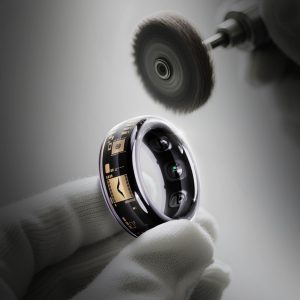Worried about your private data falling into the wrong hands? In an era of constant digital threats, securing your smartphone is paramount.
What You'll Learn:
- The fundamental role of encryption chips in smartphone security.
- Key concepts and technologies behind secure mobile devices.
- Practical steps and best practices for implementing smartphone encryption.
- The tangible benefits and measurable results of using devices with advanced encryption.
- A comparison of the top 7 most secure smartphones for 2025.
Smartphones with Encryption Chips
Smartphone with Encryption Chip Fundamentals
At its core, a smartphone with an encryption chip is designed to protect your sensitive data at a hardware level. Unlike software-based encryption, which can be vulnerable to sophisticated attacks, a dedicated encryption chip provides a secure, isolated environment for cryptographic operations. This means that encryption and decryption processes are handled directly by the chip, significantly reducing the risk of data breaches through software exploits.
These chips often implement Trusted Execution Environments (TEEs), creating a secure partition within the main processor. This partition operates independently of the main operating system, ensuring that even if the OS is compromised, the data within the TEE remains protected.
Key Concepts
Several key concepts underpin the security offered by smartphones with encryption chips:
- Hardware Security Module (HSM): A dedicated physical device that safeguards and manages digital keys and performs cryptographic operations. Many modern encryption chips act as miniature HSMs.
- End-to-End Encryption: While often associated with messaging apps, the principle applies to device storage. Encryption chips ensure that data is encrypted from the point of creation to the point of access, with keys securely managed.
- Secure Boot: This process ensures that the device boots up using only trusted software, preventing malicious code from loading before the operating system.
- Key Management: The secure generation, storage, and retrieval of cryptographic keys are crucial. Encryption chips are designed to handle these operations with a high degree of security.
- Biometric Authentication: Fingerprint scanners and facial recognition systems often integrate with encryption chips to securely unlock and access encrypted data.
“Hardware-level encryption is the bedrock of modern mobile security. It provides a level of protection that software alone simply cannot match against determined adversaries.” – Dr. Anya Sharma, Cybersecurity Analyst
Smartphone with Encryption Chip Implementation
Getting Started
Implementing and leveraging the security features of a smartphone with an encryption chip typically involves a few key steps:
- Initial Setup: During the initial setup of your smartphone, you'll likely be prompted to set up a strong screen lock (PIN, pattern, or password) and potentially a biometric authentication method. This is the first layer of defense that works in conjunction with the encryption chip.
- Enable Full Disk Encryption: Most modern smartphones with encryption chips have full disk encryption enabled by default. This encrypts all data stored on the device, including apps, photos, videos, and system files. You can usually verify this in your device's security settings.
- Secure App Usage: Be mindful of the apps you install. Only download from trusted sources and review app permissions carefully. Some apps may offer their own encryption features, which can further enhance data security.
- Regular Software Updates: Keep your device's operating system and all installed applications updated. These updates often include critical security patches that address newly discovered vulnerabilities.
Best Practices
To maximize the security benefits of your encrypted smartphone, consider these best practices:
- Strong Passcodes/Biometrics: Use a complex PIN or password that is difficult to guess. For biometrics, ensure your device supports secure biometric enrollment.
- Avoid Rooting/Jailbreaking: Modifying the operating system can compromise the integrity of the TEE and weaken hardware-level encryption.
- Be Wary of Public Wi-Fi: While not directly related to the encryption chip, using unsecured public Wi-Fi can expose your data to interception. Consider using a VPN.
- Secure Cloud Backups: If you use cloud backup services, ensure they are also encrypted and that you are using strong credentials for those services.
- Physical Security: The most secure device is useless if it's lost or stolen without proper safeguards. Enable remote wipe features if available.
Smartphone with Encryption Chip Benefits and Results
Expected Outcomes
The primary expected outcome of using a smartphone with a robust encryption chip is significantly enhanced data privacy and security. This translates to:
- Protection Against Data Theft: Even if your device falls into the wrong hands, the data stored on it will be unreadable without the correct decryption key.
- Confidentiality of Communications: Sensitive personal and professional information remains private.
- Reduced Risk of Identity Theft: By protecting personal data, the risk of your identity being stolen is greatly diminished.
- Compliance with Regulations: For businesses and individuals handling sensitive data, hardware encryption aids in meeting various data protection regulations.
Success Metrics
Measuring the “success” of smartphone encryption can be approached through several metrics:
- Number of Successful Data Breaches Prevented: This is hard to quantify directly for an individual, but industry-wide, the presence of robust hardware encryption significantly reduces the attack surface.
- User Confidence and Peace of Mind: A subjective but crucial metric. Users feel more secure knowing their data is protected at the hardware level.
- Reduction in Successful Phishing/Malware Attacks Targeting Device Data: While not solely attributable to encryption chips, they form a crucial part of the defense.
- Device Security Audit Scores: For enterprise environments, devices with certified encryption chips often perform better in security audits.
Here's a comparison of key security features you might find in high-security smartphones:
| Feature | Smartphone A (e.g., iPhone 15 Pro) | Smartphone B (e.g., Samsung Galaxy S24 Ultra) | Smartphone C (e.g., Google Pixel 8 Pro) | Smartphone D (e.g., SikurPhone) |
| Encryption Chip | Secure Enclave | Samsung Knox (hardware-backed) | Titan M2 security chip | Dedicated hardware encryption |
| Full Disk Encryption | Yes (AES-256) | Yes (AES-256) | Yes (AES-256) | Yes |
| Secure Boot | Yes | Yes | Yes | Yes |
| TEE Support | Yes | Yes | Yes | Yes |
| Biometric Security | Advanced Face ID | Advanced Fingerprint & Face Recognition | Advanced Fingerprint & Face Unlock | Fingerprint & PIN |
| OS Security Updates | Regular & Long-term | Regular & Long-term | Regular & Long-term | Proprietary OS updates |
The following are some of the leading smartphones known for their robust security features, particularly their use of dedicated encryption chips, as we look towards 2025.
- Apple iPhone 15 Pro/Pro Max: Features the Secure Enclave, a dedicated security coprocessor that handles sensitive data like Face ID information and cryptographic keys. It's deeply integrated into iOS for robust hardware-level security.
- Samsung Galaxy S24 Ultra: Powered by Samsung Knox, a multi-layered security platform that includes hardware-backed security features, a secure processor, and real-time kernel protection.
- Google Pixel 8 Pro: Equipped with the Titan M2 security chip, designed to protect sensitive data and credentials, making it highly resistant to advanced attacks.
- SikurPhone: A smartphone designed from the ground up with security as its primary focus. It utilizes a dedicated hardware encryption chip and a proprietary secure operating system.
- CAT S75: Known for its ruggedness, this phone also incorporates hardware-based security features to protect user data, making it a secure option for demanding environments.
- Fairphone 5: While emphasizing ethical sourcing and repairability, the Fairphone 5 also includes a TrustZone-based secure environment for enhanced data protection.
- Teracube Thrive: This device focuses on privacy and security with its custom Android build and a commitment to long-term software support, alongside hardware-level security measures.
FAQ (Frequently Asked Questions)
Q: What exactly is an encryption chip in a smartphone?
A: An encryption chip, often referred to as a Secure Element or a dedicated security coprocessor (like Apple's Secure Enclave or Google's Titan M2), is a specialized piece of hardware designed to perform cryptographic operations securely. It creates an isolated, protected environment for managing encryption keys and processing sensitive data, making it much harder for software-based attacks to compromise your information.
Q: Is full disk encryption on smartphones truly secure?
A: Yes, full disk encryption, especially when implemented with hardware-assisted encryption chips, is highly secure. It encrypts all data stored on your device, rendering it unreadable without the correct decryption key (usually tied to your screen lock and biometric authentication). The hardware chip ensures that the encryption and decryption processes are handled securely and efficiently.
Q: Do I need to do anything special to activate the encryption chip?
A: For most modern, reputable smartphones, the encryption chip's core functions, like full disk encryption and secure boot, are enabled by default during the initial setup. You typically activate its benefits by setting a strong screen lock (PIN, password, or pattern) and configuring biometric authentication (fingerprint or facial recognition).
Q: How does a hardware encryption chip differ from software encryption?
A: Software encryption relies on the main processor and operating system to perform encryption tasks. This makes it vulnerable if the OS itself is compromised. A hardware encryption chip, however, is a separate, dedicated component with its own secure environment. This isolation means that even if the main OS is attacked, the encryption chip and the data it protects remain safe.
Q: Are all smartphones with “secure” features truly protected by dedicated encryption chips?
A: Not necessarily. While many smartphones offer security features, only a subset includes dedicated, hardware-based encryption chips. It's important to look for specific mentions of security coprocessors, TEEs, or named security chips like Titan M2, Secure Enclave, or Samsung Knox's hardware roots to ensure you're getting true hardware-level encryption.






